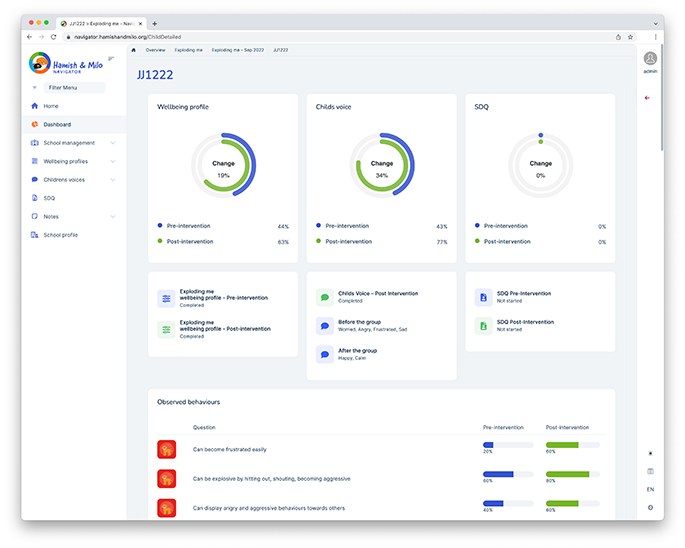There’s no question that social-emotional learning (SEL) is essential to children’s success in learning and life, and it’s often said that “what gets assessed gets addressed”.
Vital tracking and assessing of progress
Measuring the impact of SEL programmes and intervention might feel challenging, as it’s less tangible than academic skills, but we know that tracking and assessing the progress of children’s social and emotional development is vital.
To ensure the best outcomes and prioritisation of time and resources, it is essential to have targeted programmes paired with qualitative impact measurement tools to support children’s all-important social and emotional development.
For children with autism spectrum conditions who may have a harder time with this development, using creative and visual resources that support their learning challenges, social interactions, and emotion regulation, is a key part of quality education.
Prioritising approaches and resources
Alongside this is the need for resources that demonstrate clear impact, that signpost and provide reporting through assessment and data to show change and progress. This ensures the prioritisation of approaches and resources to ensure the best outcomes and to see real differences that enhance children’s experiences within the learning environment.
At Hamish & Milo, we provide an emotions curriculum and a range of intervention programmes for children to explore a broad range of emotions such as anxiety and fear, strong and angry feelings, change and transition, friendship and diversity.
All children need opportunities to express how they feel and to be given the opportunity to develop their social and emotional literacy skills, as well as learn helpful emotional regulation skills.
Welcome to the Navigator platform
So, to support our impact on research-based social and emotional learning programmes, we have created ‘Navigator’ – an innovative digital platform to assess social and emotional learning in schools and demonstrate each child’s journey.
Staff can track, monitor, assess and develop ongoing pathways for children by identifying presenting behaviours, underlying emotional needs and social and emotional skills that are enhanced by being part of the intervention programme.
- Identification and assessment – ‘Compass’ is our Social and Emotional Literacy Skills Profile that helps identify individual child strengths and areas of need.
- Measure – our Child Wellbeing Profiles provide descriptors of presenting behaviours, highlighting underlying needs and helping us establish a clear baseline to then be able to track progress or development.
- Demonstrate impact – Dashboards provide visually engaging, easily digestible data at individual child, group, programme, school, and trust levels, as well as representing the child’s voice.
- Evidence-graduated response plans – data and information to support report writing, signposting to multi agencies and progress tracking for IEPs, PEPs and enhanced provision.
- Evidence EHCP plans and reviews – a framework for SEMH support as part of the graduated response within EHCP provision.
- Insight for Ofsted Inspections – demonstrate the range and impact of targeted intervention, SEMH provision and evaluation.
- GDPR compliant – no child names, just child codes, and all the information is stored in state-of-the-art, secure Microsoft Azure data centres in the UK.
- Secure platform – built on Azure App Services, protected by an Application Gateway with Web Application Firewall for fully comprehensive cybersecurity.
Let’s assess and address
SEL plays a central role in helping children to develop the skills for academic and educational success and, more importantly, lifelong well-being, so let’s “assess and address” the widespread social, emotional, and mental health needs of children.
Visit www.hamishandmilo.org/navigator to find out more.




















